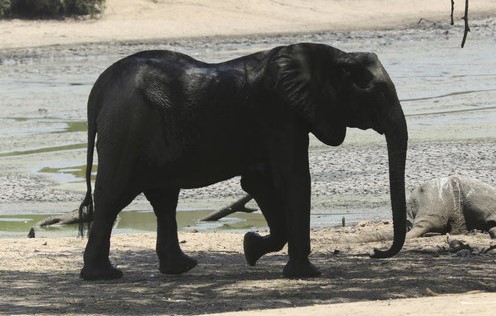HARARE, Zimbabwe: At least 100 elephants have died in Zimbabwe’s largest national park in recent weeks because of drought, their carcasses a grisly sign of what wildlife authorities and conservation groups say is the impact of climate change and the El Nino weather phenomenon.
Authorities warn that more could die as forecasts suggest a scarcity of rains and rising heat in parts of the southern African nation including Hwange National Park. The International Fund for Animal Welfare has described it as a crisis for elephants and other animals.
“El Nino is making an already dire situation worse,” said Tinashe Farawo, spokesman for the Zimbabwe National Parks and Wildlife Management Authority.
El Nino is a natural and recurring weather phenomenon that warms parts of the Pacific, affecting weather patterns around the world. While this year’s El Nino brought deadly floods to East Africa recently, it is expected to cause below-average rainfall across southern Africa.
That has already been felt in Zimbabwe, where the rainy season began weeks later than usual. While some rain has now fallen, the forecasts are generally for a dry, hot summer ahead.
Studies indicate that climate change may be making El Ninos stronger, leading to more extreme consequences.
Authorities fear a repeat of 2019, when more than 200 elephants in Hwange died in a severe drought.
Drought-stricken Zimbabwe park: At least 100 elephants die
3

